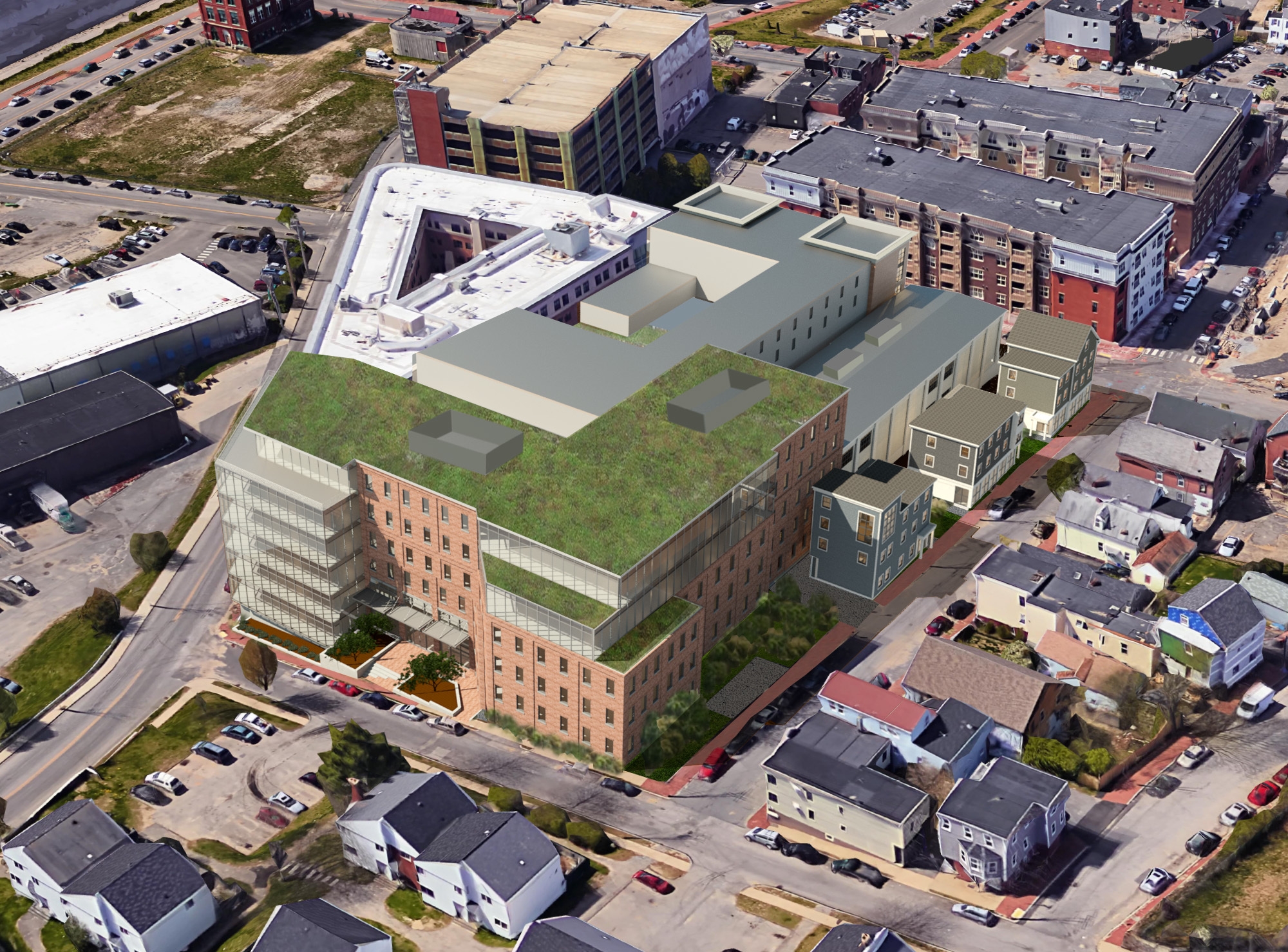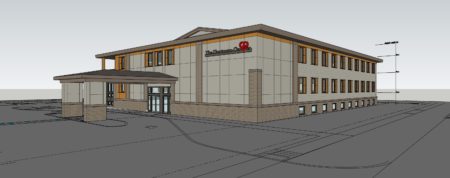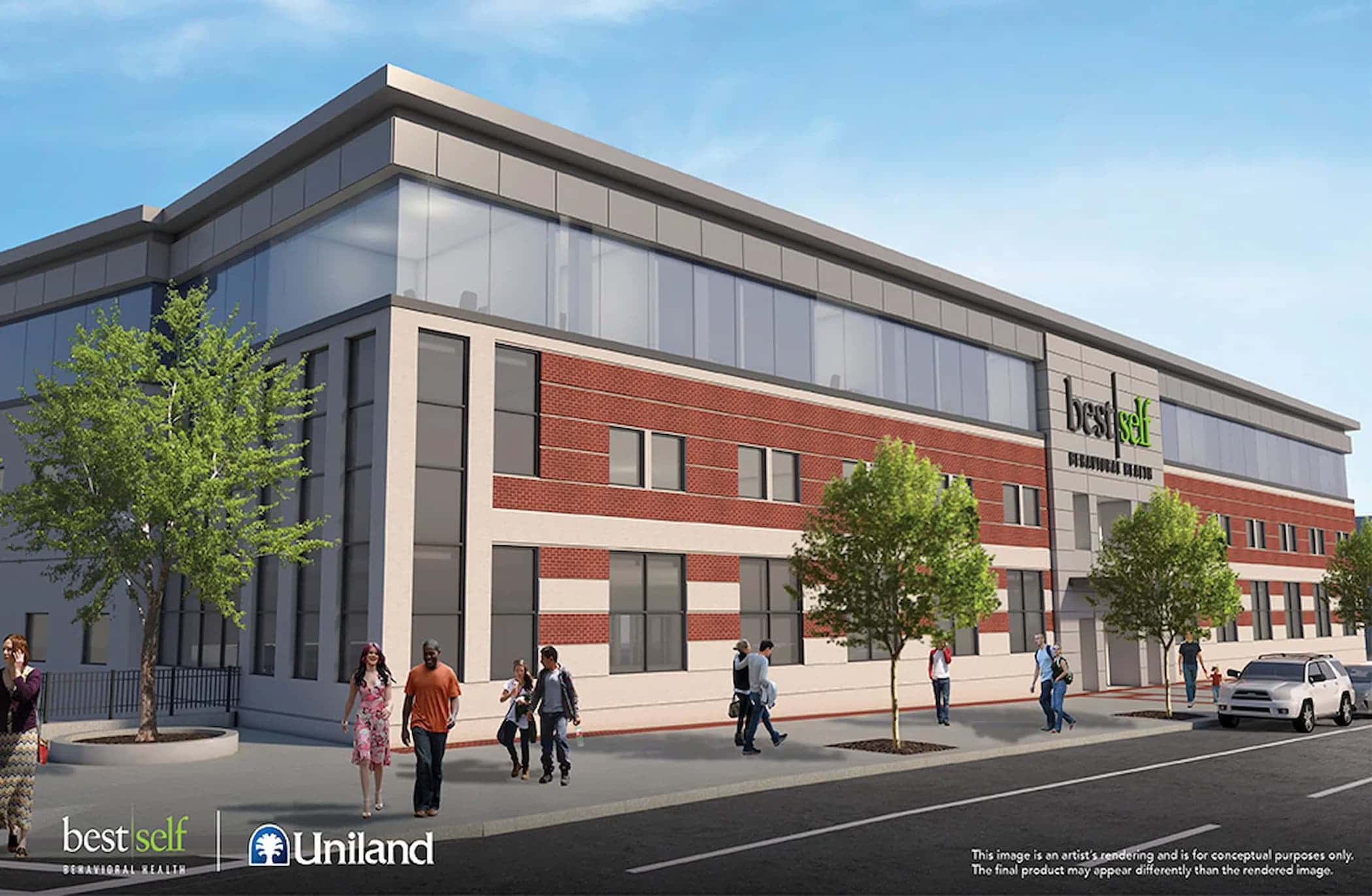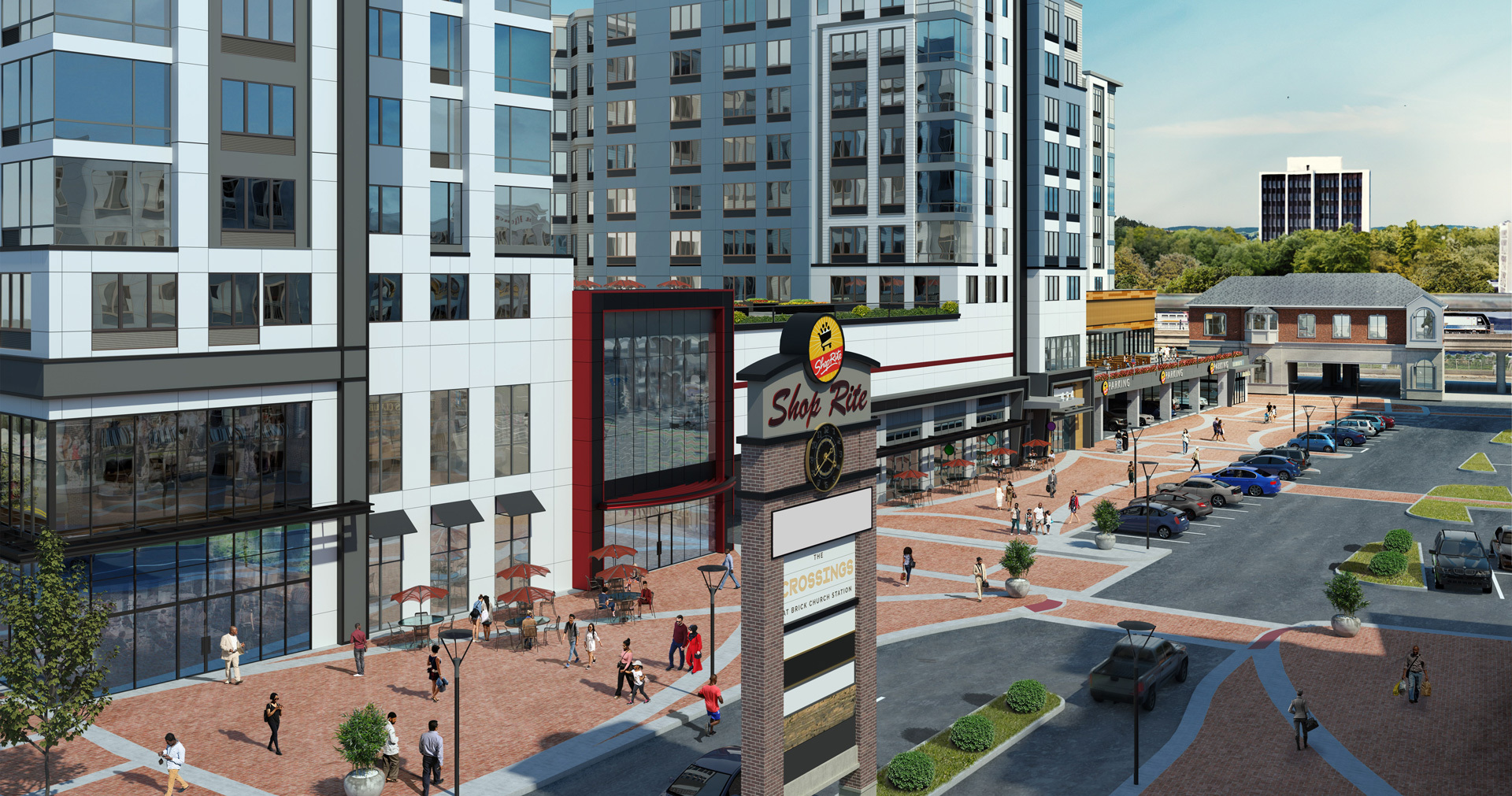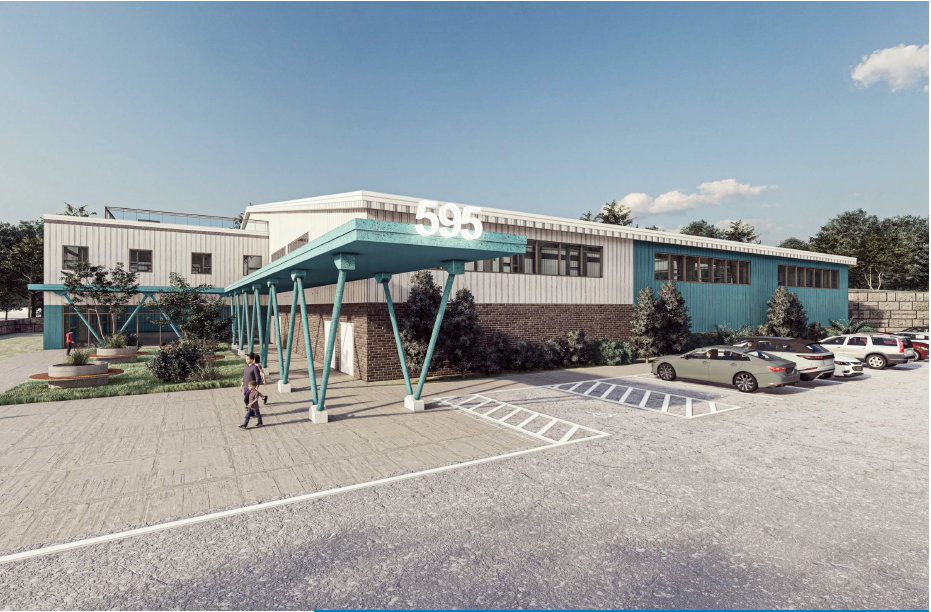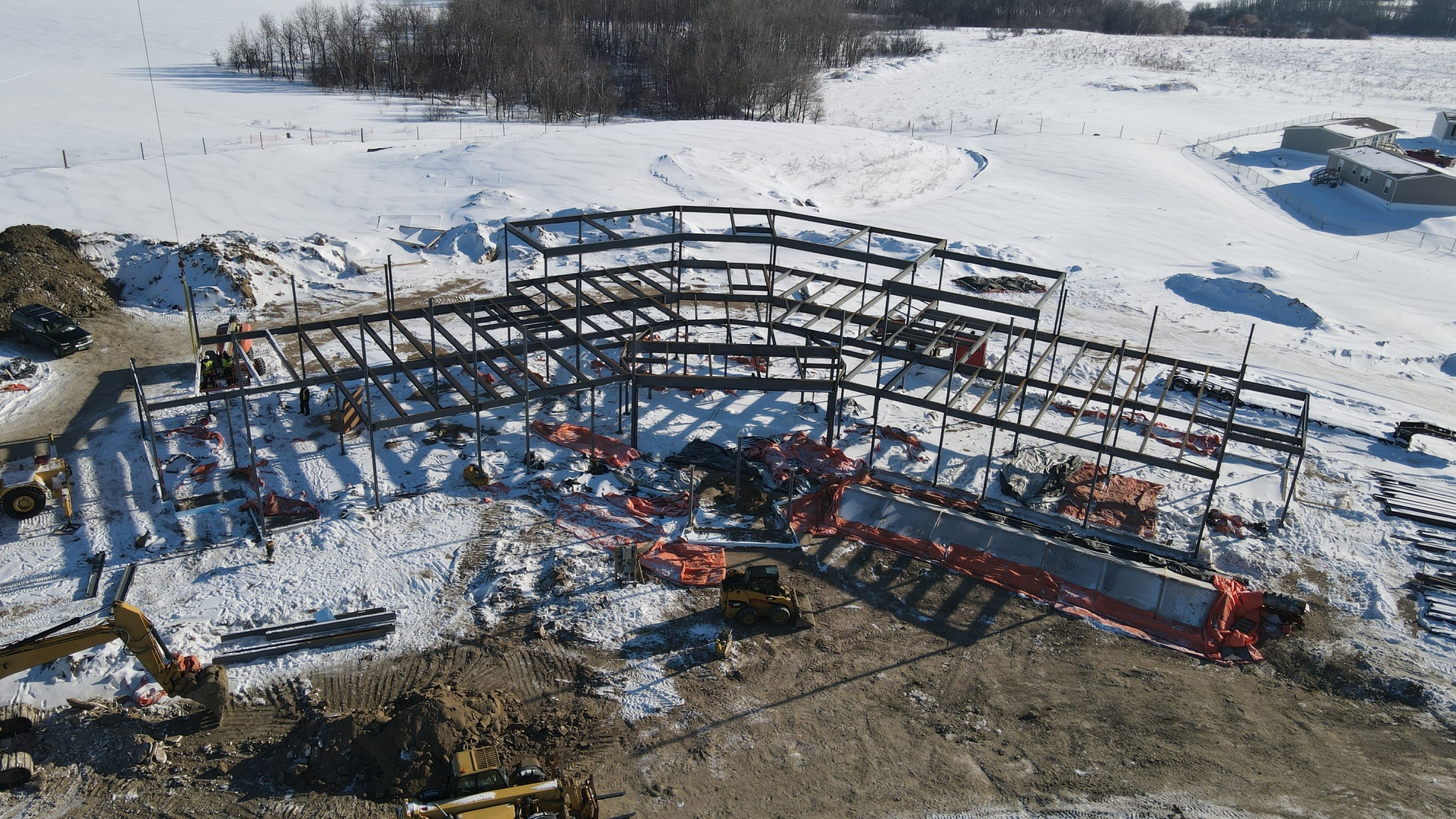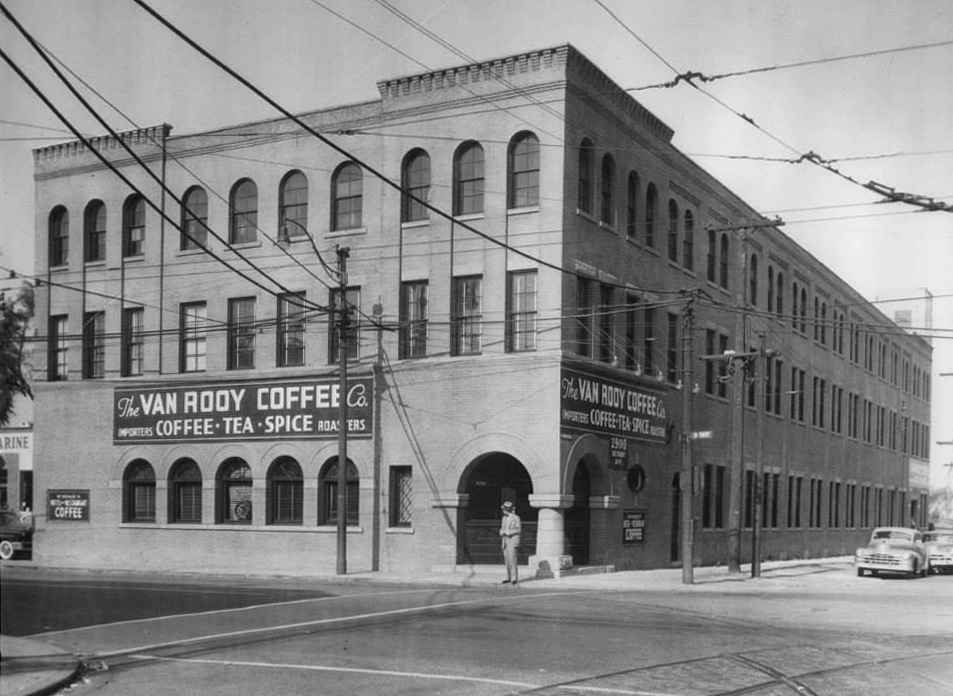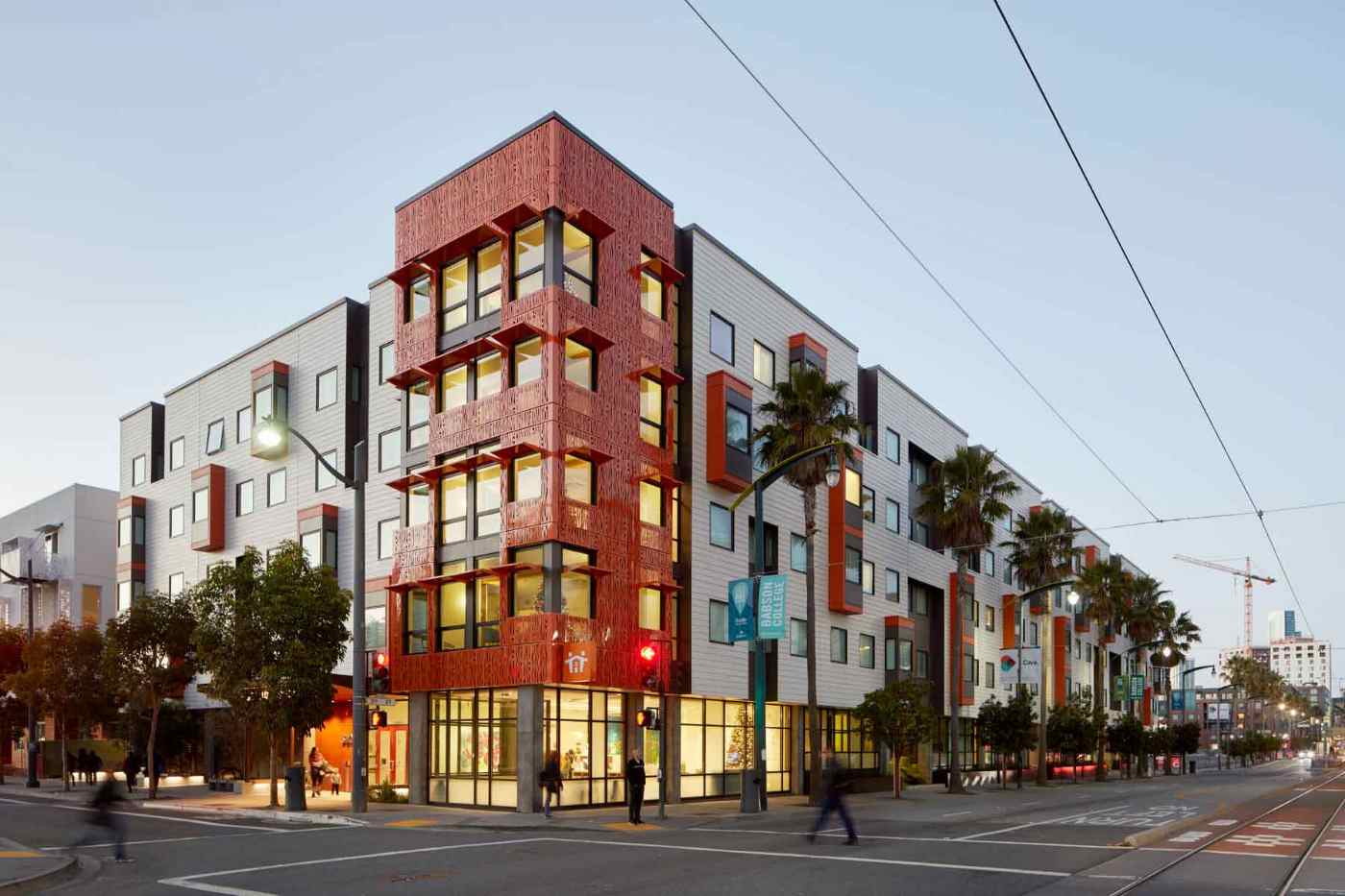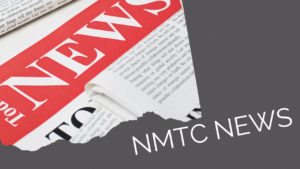The NMTC helps expand access to affordable healthcare, emergency services, cancer treatment, substance abuse treatment, and other important healthcare services in low-income communities.
Hospitals and Emergency Services
2011
Alexandria, LA
CLSH is a short-term stay hospital recently expanded and opened in May of 2010, providing quality and effective patient services to both the insured and uninsured. Roughly 47% of CLSH payments are derived from Medicare and Medicaid. Approximately 50% come from Blue Cross and other commercial providers. Nearly 1 in 5 of CLSH’s patients are impoverished Medicaid recipients. The new facility faces a number of operational challenges and is located in a rural census tract that is medically underserved with a poverty rate of 50.6%. CLSH is responsible for significant job creation; NMTC financing preserved 157 jobs, including over 100 physicians.
2021
Uniontown, PA
Local hospital needed funding in order to purchase and install software system required by larger healthcare system that was acquiring the facility.
68.9% of people served are low-income persons and 91% of jobs retained are quality. The market served has a slightly declining population of approximately 135 thousand. It is also the second poorest county in the state of Pennsylvania. In addition, the Hospital represents the largest nongovernmental employer in the area making the borrower a vital part of the community both from a health and an economic perspective.
The Hospital became operationally and financially distressed in recent years as a result of a failed relationship with a local healthcare network along with the realities of operating an independent, rural hospital in the current healthcare industry. The borrower is developing a new relationship with a large healthcare network that is planned to stabilize and enhance the availability of healthcare services in the community and to promote system for services not otherwise available locally.
2020
Parsons, KS
Labette Health County Medical Center project addresses the expansion and renovation of their hospital in Parson, KS. The Parsons community, including the surrounding six-county area that Labette serves, is in critical need for improved access to healthcare services within the severely distressed, Low-Income Community. Based on the Robert Woods Johnson County Health Rankings, the communities the Sponsor serves has some of the lowest health outcomes in the entire state of Kansas. Out of the 104 Kansas counties that were ranked, Labette’s primary service area includes Labette, Neosho, and Montgomery, were respectively ranked at 96, 101, and 103 counties in health factors. Furthermore, within the last four years, three hospitals have closed in Labette’s surrounding area, including Mercy Independence, Mercy Fort Scott, and Oswego Community Hospital. Due to these closures and the sudden increase in demand, the Sponsor projects a 5% compound annual growth rate for the next seven years. Labette Health’s expansion and continued success is vital to the community’s welfare. In order to meet its anticipated demand, the Sponsor explains the following updates are required to maintain a high-quality care: Upgrades to the medical surgical unit and conversion to a private bed model; The addition of operating room capacity; Updating the intensive care unit including the addition of inpatient dialysis; A complete modernization and renovation of the birthing center; Construction of a new orthopedic and surgical wing with an addition of 18 private beds; Expansion of their central plant in order to support the expansion.
2016
Chicago, IL
In the works since at least 2012, an ambitious plan to build a new community health and wellness campus in Chicago’s Little Village neighborhood has cleared another milestone. Yesterday, the City of Chicago’s Community Development Commission (CDC) voted in favor of a measure to sell a blighted, formerly industrial property near 31st Street and Kedzie Avenue to the project’s developers for $1. The parcel will eventually be transformed into a new facility for Saint Anthony hospital and a wide collection of amenities for the neighborhood. More than simply a medical center, the so-called Focal Point Community Campus will provide nearby residents with fitness facilities, sports fields, and other community-oriented services.
Federally Qualified Health Centers
2022
Dunkirk, NY
The project consists of the construction of a new 37,500 sq. ft. health center facility that will consolidate two existing stand-alone sites (a primary care site, and a co-located behavioral health and dental health site) in rural Chautauqua County in Western New York. The proposed NMTC financing will help to satisfy PCDC’s requirement under the 2020 NMTC Allocation Agreement to invest 25% of its $65 million award in non-metropolitan/rural areas. The consolidation of two of TCC’s three Dunkirk sites will allow greater communication among providers, streamline service delivery, improve access to care using a more team-based approach to address a wider range of patients’ needs during a single visit, and provide an on-site pharmacy to improve medication adherence. + “By consolidating locations, TCC will benefit from having streamlined operations and service delivery, along with additional providers and capacity to better serve the needs of our community,” noted Michael Pease [pictured], CEO of TCC. PCDC is providing $7 million of NMTC allocation and a $1 million loan from the NYS Fund towards The project. Specifically, TCC’s expansion will: Integrate and expand medical, women’s health, behavioral health, and dental services to one location; Add OB/GYN, psychology, and optometry services; Double the number of dental operatories and triple the number of behavioral health counseling rooms and primary care exam rooms; Add 10 clinicians, including two primary care providers, four behavioral health specialists, two dentists, and two hygienists; Increase the number of support staff to assist clinicians and provide additional outreach; Include telehealth infrastructure to ensure it can provide specialty services; Provide a community kitchen and Board and training rooms; Improve the effectiveness and efficiency of its processes and layouts to better meet value-based targets. + NAISC: All Other Outpatient Care Centers + CBA: Yes. All employees hired for The project will receive benefits and a living wage. The project will target approximately 15% participation of Low-Income Persons, residents of Low-Income Communities or Under-Represented Minorities in the FTE Permanent Jobs and 15% in Construction Jobs. The CBA projects that 3,000 or 50% patients are expected to receive benefit counseling/assistance with enrollment into food stamps, insurance plans other entitlement programs and supportive services. The Sponsor will employ eligibility workers and case managers who can conduct the screenings and assist the patients. All patients will be offered these services.
2022
Buffalo, NY
This transaction supports for the new home for the Erie County Child Advocacy Center and headquarters for BestSelf. BestSelf Behavioral Health is the largest community-based additional program locations. BestSelf is a certified Community Behavioral Health Clinic and serves more than 35,000 individuals a year with an annual budget of over $80M and more than 1,100 employees. + NAISC: Outpatient Mental Health and Substance Abuse Centers + CBA: Yes, This project’s objective is to increase the percentage of cases they serve to end the child sexual and physical abuse that occurs in the Western, NY region per year (more than 2,000 are children of color). Currently, only 30% of these cases are able to be served through the Erie County Child Advocacy Center (CAC) at its current location. To address this need, the Erie County Child Advocacy Center @ BestSelf will be expanded and relocated to 899 Main Street in Buffalo, NY.
2022
East Orange, NJ
The Crossings at Brick Church Station is an urban, mixed-use redevelopment anchored by a 68,000 sq. ft. ShopRite Supermarket, 24,000 sq. ft. of retail space including 2,000 sq. ft. of minority and locally owned retail, Ashely Stewart, an affordable women’s clothing store, Newark Community Health Center, a Federally Qualified Health Center, public open space, and mixed-income residences in a town center format. Located adjacent to the Brick Church train station, The Crossings at Brick Church Station will provide a new focal point for East Orange, create quality jobs in the community, and catalyze future investment. + Acquisition, development and construction of an 85,000 sq. ft. retail condominium within Phase 1A of Brick Church Redevelopment Project, consisting of ShopRite grocery, FQHC and other commercial, retail and restaurant space. The Brick Church Redevelopment Project is an urban, mixed-use, transit-oriented development project anchored by a supermarket, restaurants, shops, public open space, mixed-income residential rental units and associated parking in a town center format around the Brick Church New Jersey Transit Train Station. The project site is designated as a “Transit Village” by the State of New Jersey, which creates incentives for municipalities to redevelop or revitalize the areas around transit stations using design standards for transit-oriented development. + The Crossings at Brick Church Station (“The project” and “Brick Church”) will be the redevelopment of an existing shopping center into a reimagined urban mixed-use town center located in the heart of East Orange, NJ. Brick Church was constructed in the early 1980s, and it is dire need of an upgrade and modernization. The project is located along the city’s main thoroughfare and is directly adjacent to the New Jersey Transit’s Brick Church Train Station; its literally one stop from Manhattan, NY. Once complete, The project will provide a new focal point for the East Orange community and will be a crucial catalyst for additional development and economic stimulus for this bedroom community centrally located between Trenton, NJ and NYC. The 1.4 million sq. ft. Project will be redeveloped in two phases. Phase 1A, which will utilize the NMTCs, consists of 92k sq. ft. of commercial retail space and 815k sq. ft. of separately LIHTC financed units of 400 mixed-income apartments (of which 20% will be affordable to persons at or below 50% AMI). Based on input from community residents and key stakeholders, the retail space will include the following uses: • Grocery Store and Pharmacy: Shop Rite will remain as the anchor tenant in the shopping plaza. As part of the redevelopment, Shop Rite will receive a new store thus increasing its footprint from 50k to 60k sq. ft. It is the only high-quality, full-service grocer within a 2.5-mile radius, and the store will remain open during the construction phase. • Healthcare: Newark Community Health Center, which is a federally qualified health center (“FQHC”), will provide primary care services, health and wellness education programs, and an urgent care facility. • Restaurant: The confirmed tenants include the existing Dunkin Donuts and two new tenants – an ice cream shop and the only sit-down restaurant in the area. • Retail: Ashely Stewart is the only existing clothing retailer that will remain. • Workforce Development Center (1k sq. ft.): In partnership with the City of East Orange, will have an onsite job training center for local residents to have access to construction and permanent jobs. • Parking: Parking garage with 1,236 spaces. Per the Sponsor, The Crossing at Brick Church will “enhance the social infrastructure of the low-income neighborhood through the creation of an equitable, connected community that improves the quality of life for residents by increasing mass-transit usage, the elimination of blight and significant job creation.” + The Phase 1 (and NMTC portion) of this multi-phase, urban, mixed-use town center includes 85k sq. ft. of retail and community space, anchored by a grocery store and an FQHC. The project will also include a 1k sq. ft. workforce development office on site in conjunction with the Mayor’s Office of Employment and Training to create workforce training programming.Located adjacent to the Brick Church train station, the Crossings at Brick Church will provide a new focal point for the City of East Orange (“City”) and catalyze additional investment and economic growth while ensuring that social equity goals are interwoven in the development plan. The site is currently underutilized, housing a 1980’s era ShopRite-anchored retail center. The Crossings at Brick Church project will wholly redevelop the site as a multi-phase, mixed‐use project that will ultimately contain 1,070 mixed-income housing units and 232K sq. ft. of retail/commercial space with a supermarket, health clinic, restaurants and shops, a parking garage and public open space in a town center format. + N/A + Also includes Enterprise LIHTC Investment. + NAISC: Supermarkets and Other Grocery (except Convenience) Stores + CBA: Yes. At least 50% of the direct created and retained permanent FTE jobs will be provided to Low-Income Persons or to residents of a Low-Income Community. Brick Church will use a portion (amount to be determined in partnership with the City of East Orange) of the net NMTC proceeds to fund the creation of a workforce development program and operate local workforce development centers to help unemployed and underemployed local members of the low-income community prepare for interview and provide basic job skills. Through its leases with retail tenants, The project will require tenants first consider candidates sourced through the workforce development partnership for all open positions. Additionally, the funds will be used to provide on-going support and skills training to help the candidates stay in their jobs and advance to higher paying jobs. Borrower will use commercially reasonable efforts to collect reporting on the results of these first-source hiring and workforce development programs. + Yes, create both Quality and Accessible permanent and construction jobs. Quality jobs will pay a living wage and build wealth by meeting at least 3 of the following: 1) is full time; 2) provides health insurance; 3) offers a retirement plan; 4) offers profit sharing/stock ownership; 5) offers advanced educational skills or training; 6) provides opportunities for career advancement. At least 10% of the construction $s will be awarded to MBE, WBE or businesses owned by Low-Income persons. + Yes -In partnership with the East Orange Mayor’s Office of Employment and Training, The borrower has developed the Rising Builder Scholarship program, which will give grants to East Orange residents who wish to pursue career training in the construction trades. These graduates will then create a pipeline for local hiring at the site. In addition, The borrower and its contractor have executed a PLA with Local 3 and Local 55 to supply union labor. The unions are required in those PLAs to hire both skilled and unskilled East Orange residents. The number of graduates will be reported in annual reporting. -At least 10% of subcontracting opportunities will be awarded to MBEs. + Yes. Over 62.5% of construction FTE and at least 50% of permanent FTE will be quality jobs; at least 50% of permanent FTE and 75% of retained jobs will be accessible.
2022
Bridgeport, CT
The Wakeman Boys and Girls Club will create the Madison Avenue Clubhouse. The Clubhouse will be built near 10,000 at-risk and low-income youth in the North End and Hollow sections of Bridgeport. Of the 10,000 potential members 98% are eligible for free lunch, 54% are living in single parent homes, 89% are minority. + NAISC: Child and Youth Services + CBA: Yes. Project will support 10,592 outpatient visits annually, 94% of whom will be low-income persons and 87% of which will be minorities. The NMTC Beneficiary’s continued work with children and teens will help implement and maintain a healthy lifestyle from a young age, both through physical and mental health. The project will also increase access to fundamental medical care, a priority related to overall financial success and wellbeing. Based on the new and expanded patient services, The project is in direct alignment with the needs of the community.
2022
Brooklyn, NY
Community Health Initiatives (CHI) is a Federally Qualifies Health Center (FQHC) located in the working-class community of Coney Island, NY. CHI offers primary care, pediatrics, mental/behavioral health, counselling, and other wrap around services.
NMTC financing supported a new, 8,000 sq. ft. facility across the street from CHI’s current health center. The new site, which has 19 exam rooms along with a physical therapy area, nurse station, urgent care practice, and administrative space, helped to expand their capacity by 45%.
Addiction Treatment Centers
2022
Belcourt, ND
NMTC financing totaling $10 million supported The Turtle Mountain Recovery Center that will be located within the Turtle Mountain Band of Chippewa tribal lands in Roulette County, North Dakota.
The Recovery Center will be a culturally responsive drug and alcohol addiction healing center, honoring health and tradition, that will support Turtle Mountain tribal members. The Center will serve the region by providing individual and family focused inpatient treatment and aftercare services to include life skills, workforce development, cultural teachings and a sober living network designed to support a sober community in the Turtle Mountain Tribe.
The Center will include housing to support longer-term recovery, and ancillary and culturally appropriate activities including sweat lodges, an equine center, a rope course and a nature trail on the 100 acres where the Center is being built.
The Recovery Center will be 34,000 sq. ft., have 16 beds for residential treatment as well as space for outpatient treatment services and will serve between 400 and 550 people annually. This project will create 40-50 FTES that will have wages above the ND average. Create 25 construction jobs.
2021
Austin, TX
Mobile Loaves will use UDF’s investment to finance the new construction of a campus providing affordable housing and supportive services for Austin’s homeless community. The project will be an integrated campus including three property types. These include 110 RV Homes, 206 Tiny Homes, and assorted non residential buildings that provide support services for residents. Both the RV Homes and Tiny Homes provide affordable housing targeted towards people who were formerly homeless. Non residential buildings will include: the Community Works Building, which will be a center for job training; an Aquaponice Building, growing fresh vegetables for residents; the Living Room Building consisting of at least 2,000 sq. ft. will be occupied by the Sponsor and used for offices for resident care staff, conference rooms for AA meetings, and classrooms. A portion of the Living Room Building consisting of at least 1,000 sq. ft. will be occupied by the Sponsor and include an exercise space focused on providing physical therapy and a learning-focused computer center. The remaining portion is expected to include lounge and recreational areas for residents; 7 commercial kitchen buildings; and 7 laundry/shower buildings. UDF will provide loans totaling $7.5 million. The loans will include: a below market interest rate, lower than standard origination fees, longer amortization period, a lower than standard debt service coverage ratio, and Borrower can purchase Loans for $1,000 at the end of compliance period. Community First Village will result in a number or community impacts. 35 new full-time employees will be required to provide services. 60 residents of the community will be employed annually at the entrepreneurial hub. 265 new housing units will be provided for formerly homeless residents, with 45 additional mission units. Residential areas have community building common areas with computers, counseling space, addiction recovery meetings, therapeutic activities, case management, mental health, addiction recovery, financial literacy, legal services, and educational services. Site amenities include community kitchens and laundry/restroom/shower facilities, bus stop, community gardens, walking trails, outdoor movie theater, amphitheater, nature preserve, community meeting space, salon, art house, and wifi. The local community is highly distressed and currently qualifies as a medically underserved area. The project will provide on site mental health services for its residents to help alleviate the shortage in this area.
2018
Houston, TX
NMTC financing supported a nonprofit organization providing transitional housing for Houston’s homeless population recovering from alcoholism and drug addiction. They help clients with detox and rehabilitation in a safe environment.
2015
Bronx, NY
Redevelopment of Army Reserve Center for use as a 200-bed residential job training facility for the homelessTransitional Housing Job Training Facility for Homeless. The Muller Residential Job Training Facility is a $15.5 million dollar tax-credit project that will provide housing and support for the homeless by the Doe Fund. The Doe Fund is a New York nonprofit organization whose mission is to develop holistic programs to break the cycles of homelessness, addiction and criminal recidivism.
The development of the residential job training center is situated at a former Bronx Army Reserve center. The 55,000 square foot facility will help and serve 200 homeless individuals at any given time by providing them with education and occupational training, group counseling, job placement and transitional work and housing.
Funding sources for this project include $9.5 million NMTC financing provided by Citibank NMTC Corp, along with $6 million of NMTC allocation provided by DV Community Investment LLC. Citibank also provided $4.8 million of NMTC equity, a $10.7 million leverage loan, and a $4.9 million direct loan to the project.
2005
Cleveland, OH
CDA provided $300,000 to rehabilitate the 30,000 sq. ft. Van Roy Coffee Company building into office space. The building tenants were socially focused non-profits. Tenants included Recovery Resources, which assists clients with overcoming alcoholism and other addictions, and Spectrum of Support Services, which provides vocational and occupational assistance to people with mental illness. The NMTC subsidy enabled the developer to pass on below-market-rate rents to these non-profit organizations that principally service low-income individuals and low-income community residents.
Fighting Cancer
2020
Atlanta, GA
The project will create a 555,000 sq. ft. facility (225,000 of which will be clinical space and 330,000 will be parking) with eight operating rooms, four endoscopy rooms, a Cancer Center, surgical clinics including orthopedics, general surgery, ENT, oral surgery, an Eye Center, and imaging, pharmacy, lab, central sterile supply and common support spaces, and a corridor bridge to link the building with Grady Memorial Hospital on the land. Separating ambulatory services from the inpatient services at the hospital will result in improved efficiencies and capacity for growth in both ambulatory and inpatient services. The CASS will expand Grady’s surgical clinic capacity by 45% and surgery capacity by 25%. Grady Memorial Hospital Corporation will be the tenant.
2020
Philadelphia, PA
Equipment to complete commercial kitchen space for RMH Philadelphia to provide food distribution to food insecure families
2010
Tulsa, OK
Freestanding, state-of-the-art cancer center incorporates the latest advances in cancer treatment, all under one roof
2015
San Francisco, CA
Family House serves as a home away from home for families of children with cancer and other life-threatening illnesses by providing physical comfort and emotional support, free from financial concerns. NCCLF provided $8 million to Family House to purchase land and build a facility that serves as a temporary housing complex providing temporary housing and a supportive community for families with a child who is undergoing treatment for life-threatening illnesses at nearby USCF Benioff Children’s Hospital in San Francisco.


